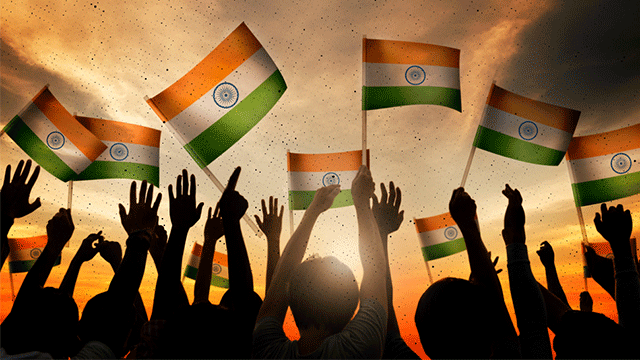The magnitude of Indian elections is unparalleled in the global context, both in terms of scale and complexity. As the world’s largest democracy, India’s elections involve millions of voters, thousands of candidates, and a sprawling administrative machinery that ensures a free and fair process. Every five years, the country conducts its general elections to choose representatives for the Lok Sabha, the lower house of Parliament, with the 2024 elections expected to be the 17th iteration of this democratic exercise. The sheer size, diversity, and significance of the Indian elections make them a phenomenon unlike any other in the world.
Scale and Voter Participation
India’s elections are a massive logistical undertaking, with a voter base that exceeds 900 million people. This is more than any other democracy, including the United States and European Union countries. The elections are held across 543 constituencies, spread over the country’s vast geographical expanse, from the snowy peaks of Jammu and Kashmir to the tropical coasts of Kerala. These elections span several weeks, due to the sheer size of the electorate and the need for staggered polling in different regions to maintain security and logistical feasibility.
In 2019, voter turnout was about 67%, reflecting the immense participation of the Indian population in the democratic process. The 2024 elections are expected to see similar or higher levels of engagement, particularly given the growing political awareness among the electorate and the role of social media in shaping political discourse. With an electorate that encompasses a wide spectrum of caste, religion, language, and regional identity, the elections are not only a national exercise but a microcosm of India’s pluralistic society.
Electoral Logistics and Technology
The logistics involved in conducting Indian elections are extraordinary. India has over a million polling stations, and each election involves the transportation and security of millions of electronic voting machines (EVMs) to these locations. The Election Commission of India (ECI) is responsible for the organization and oversight of this massive operation, ensuring that it is carried out in a fair, transparent, and secure manner. The ECI’s efforts to make the election process more inclusive, such as the introduction of Voter Verifiable Paper Audit Trails (VVPATs) and accessible voting facilities for people with disabilities, have been crucial in maintaining voter confidence in the system.
Moreover, India has been a pioneer in using technology to streamline elections. The use of electronic voting machines, voter identification cards, and an online voter registration system has made the process more efficient and transparent. However, despite these advancements, the Indian elections still face challenges such as ensuring the security of the voting process, combating electoral fraud, and managing the influence of money and social media.
Political and Cultural Significance
The political significance of Indian elections extends far beyond the formation of a new government. The elections determine the direction of the country for the next five years, shaping policies on issues such as economic growth, national security, social justice, and foreign relations. The outcome also reflects the political mood of the nation, with voters making decisions based on their lived experiences, regional dynamics, and ideological leanings.
Culturally, Indian elections are a vibrant, communal event. Campaigns are often characterized by intense rallies, political speeches, and debates. The elections also bring forward the unique regional identities, with local issues often taking precedence over national concerns. Political parties and leaders use a mix of traditional methods—such as door-to-door campaigning—and modern tools like social media to reach voters, further adding to the diverse and dynamic nature of the process.
Conclusion
In conclusion, the magnitude of Indian elections is immense, not just in terms of scale but also in the impact they have on the country’s political and social landscape. With millions of voters, complex logistics, and a rich diversity of issues and concerns, Indian elections are a monumental event that underscores the vitality of democracy in a country as diverse as India. The elections represent not just the functioning of a political system but the very pulse of a democratic society in action.

Comments
Post a Comment